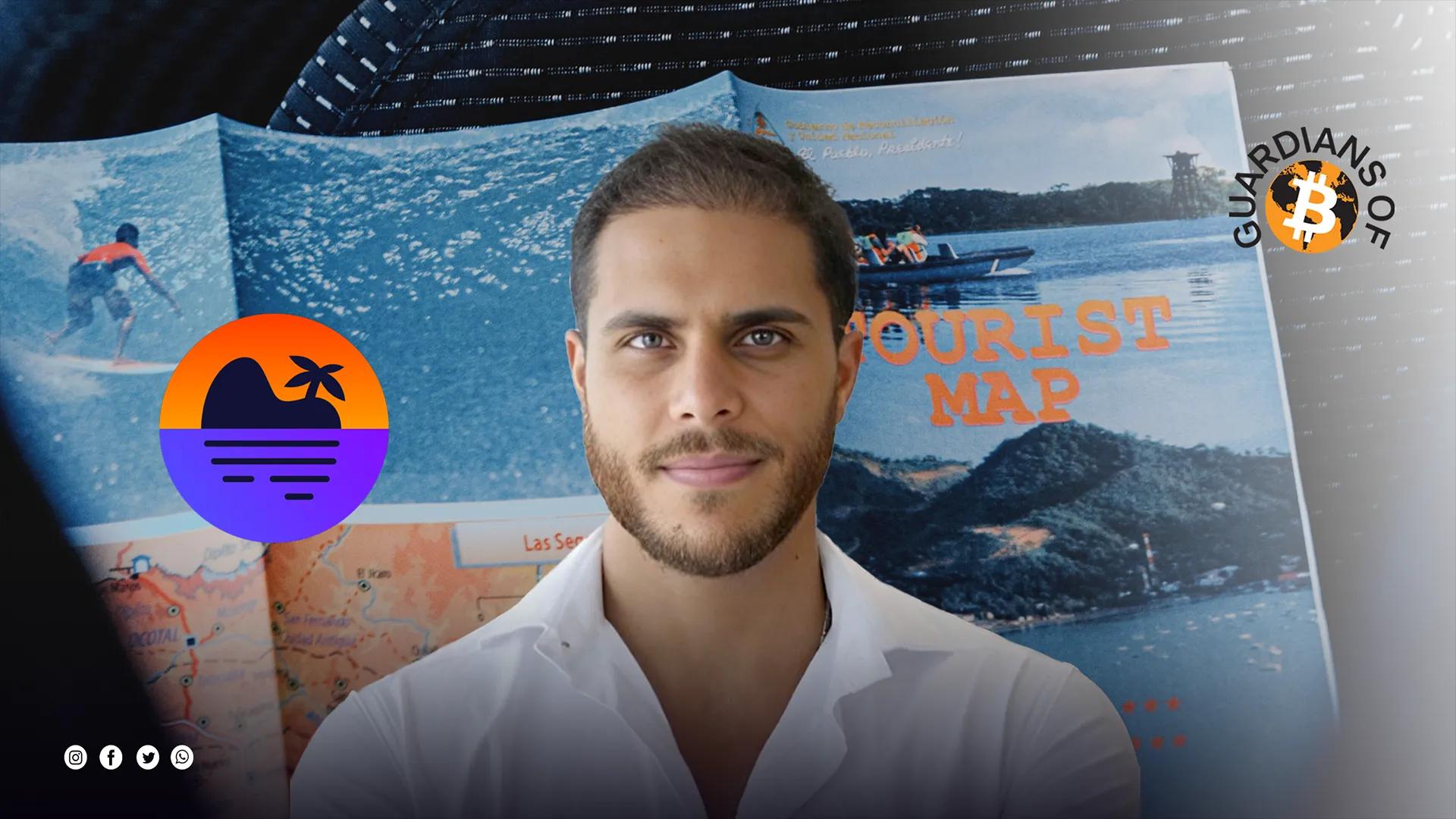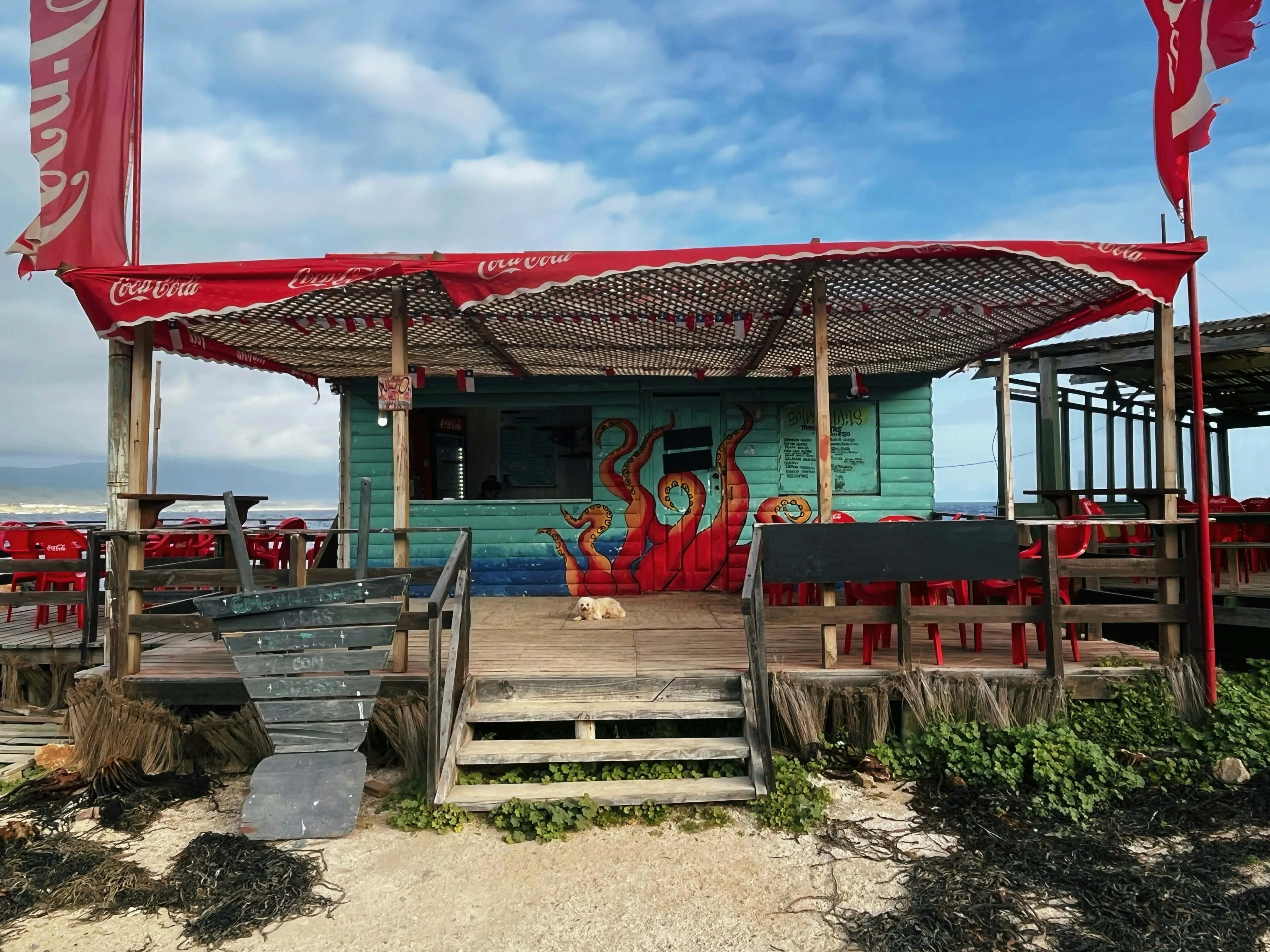Satlantis puts people at the heart of travel
'The last thing I want is to turn this app into influencer click bait slop,' says co-founder Aleksandar Svetski, rejecting the usual traps of social media

Planning travel was always a headache for Aleksandar Svetski. “I have the most curated maps on Google,” he told Guardians of Bitcoin. “I've got bookmarks of bookmarks of bookmarks... whether it's on my browser, Google Maps, Twitter, Instagram, or my notes app.”
Now, as co-founder and CEO of Satlantis, he’s building the app he always wished existed – one that replaces that tangle of bookmarks with a single, personalized hub for discovering and connecting while on the move.
Satlantis is designed to bring authenticity and connection into the digital nomad lifestyle. Users can personalize their exploration based on interests – whether they’re Bitcoiners, surfers, or foodies – and build a network of trusted recommendations.
“If you're with a friend and you're hungry for a burger,” Svetski said, “you can pop open the app, click 'near me', and it should automatically recommend the best burger place based on your taste preferences.”
A new kind of travel experience
Satlantis works across both web and mobile. On the web app, travelers can pre-plan their trips, bookmark locations, and create collections of places to visit. The mobile app functions more like Instagram, but localized – showing content and events tied to the city you’re in.
Unlike TripAdvisor, where everyone sees the same top 10 list, Satlantis prioritizes recommendations from people you actually know. “If I know you and trust your taste, I'm more likely to follow your recommendation,” Svetski said.
He argued that most social platforms have shifted from showing you posts by people you actually follow to serving up algorithm-driven content designed to maximize scrolling time. “The last thing I want to do is turn this into influencer click bait slop,” he said. To counter that, Svetski has built a tiered structure that privileges local knowledge over viral reach.
One of its most distinctive features is a tiered structure of ambassadors, residents, and followers. Ambassadors act as trusted guides with greater reach, able to highlight the best of their city – whether that’s food, nightlife, or Bitcoin-friendly businesses. Residents share what they know from living locally, and followers can connect with both groups to plan their own experiences.
Imagine landing in Lisbon and instantly plugging into a curated set of recommendations from locals who know the city best – not just the ones with the loudest Instagram presence. That’s the promise of Satlantis.

In Lisbon and other tourism hubs, Satlantis connects travelers to local tips like hidden cafés and Bitcoin-friendly spots. Photo: Unsplash / Aayush Gupta
Built on Nostr, with Bitcoin in mind
Satlantis runs on the Nostr protocol, an open network that allows users to own their digital identity and social connections. Svetski argues this foundation makes the platform more portable, allowing people to carry their connections across apps rather than being locked into the “walled gardens” of traditional social media.
For Svetski, the choice of Nostr is intentional but not naive. “Decentralization is not a solution to everything,” he said. “It is a solution with very specific trade-offs that you need to take into account.”
Those trade-offs include technical hurdles like synchronization and scalability, but Svetski believes they’re worth it to ensure long-term durability. Users won’t lose their social connections if the app changes or disappears – their network remains theirs.
Bitcoin also plays a role, though not immediately. While many projects rush to add payments, Svetski is deliberately being patient. Satlantis will first focus on building utility, then create the conditions for a “circular economy” where travelers can spend Bitcoin directly with local merchants.
“We’re trying to bridge the worlds together, and we’re trying to build a travel application that is underpinned by a social graph,” he said.
From Spirit of Satoshi to Satlantis
Satlantis wasn’t born out of thin air. Before this project, Svetski and his team built the Spirit of Satoshi, a Bitcoin-focused AI model trained to explain concepts like inflation, Proof of Work, and sound money. The idea was to create a travel concierge chatbot, but they quickly realized that wasn’t the right approach.
That failure was pivotal. “If people ask me what they wanted, they would have told me a faster horse,” Svetski said, quoting Henry Ford. Instead of delivering a chatbot nobody really wanted, the team pivoted to build something far more ambitious: a social network designed to reshape how nomads and travelers connect.
The experience taught them how to work together, refine their ideas, and most importantly, listen to the real needs of users. The biggest realization was simple: travel isn’t neat or predictable, it’s messy – and any platform worth building had to embrace that fact.
Embracing the messy reality of travel
Travel is rarely neat, and Satlantis reflects that. “Life is messy. Humanity is messy. And I think messy is more close to the natural order than sterile,” Svetski said.
That worldview stands apart from most mainstream travel apps. Where platforms like TripAdvisor and Instagram serve up polished, one-size-fits-all content, Satlantis leans into the imperfect and unexpected. It’s not about chasing viral photo spots or checking off standard itineraries.
Instead, it focuses on the kind of moments that can’t be planned in advance – like hearing about a spontaneous Bitcoin meetup in Barcelona or being steered by a local toward a quiet café in Chile with no online footprint. These experiences thrive on word of mouth and human trust, not algorithms or ad rankings.
The goal isn’t to remove friction. It’s to make exploration more personal, more connected, and ultimately more meaningful.

Off-grid recommendations matter – A remote beach bar in Chile, the kind of hidden gem you’ll hear about from locals, not find trending on Instagram. Phot: Unsplash / Jennie A
Where Satlantis stands now
The app is no longer just in development – it’s already in the hands of early users. A mobile version of Satlantis is live on TestFlight and Google Play, with sign-ups open through the project’s website.
“We’re trying to build a travel application that is underpinned by a social graph, so that it becomes relevant, dynamic, and personalized,” he said.
For digital nomads, travelers, and anyone tired of juggling multiple apps to find authentic local experiences, Satlantis could be more than just another tool. It might become the way we explore the world in a more connected, more human way.
“I am, in large part, solving my own problem with Atlantis,” Svetski said, “but doing it in a way that I hadn't even thought of before.”



